Startups are constantly evaluating and implementing new technologies, which requires engineers to stay on top of the industry's latest developments. But keeping your skills sharp while working in a deadline-driven environment can be tough. We spoke with engineers at seven Chicago tech companies about how they manage that balancing act, and how their employers help them grow as developers.
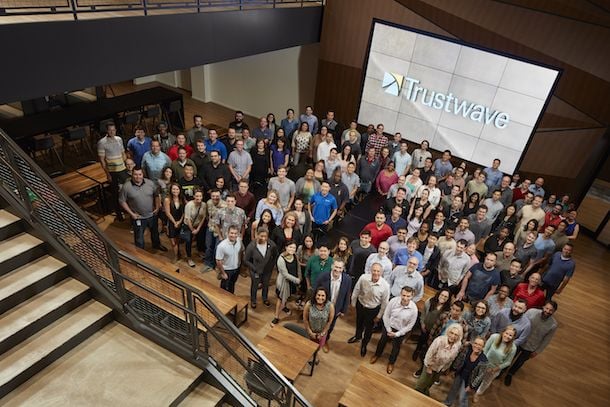
Trustwave helps companies protect their data and fight cyber criminals with cloud-based and managed software solutions and consulting services. Engineer Niko Carpenter said collaborating with team members to solve problems helps sharpen his skills.
How does your work help you grow as a developer?
The code that we ship to production handles hundreds of thousands of merchants. This means we need to always think about performance, availability and long-term solutions rather than quick fixes. This, and some rather custom work that our larger customers ask us to do, means we’re always kept on our toes.
Almost everyone on my team approaches a problem differently, which means there’s an opportunity to learn new things while creating awesome products.
What resources or opportunities does Trustwave offer to you and your team to grow your skill sets?
Trustwave has an extensive wiki, and we are strongly encouraged to make use of it. There are also “brown bag” presentations where an employee will present a technology or skill during lunch to anyone at Trustwave who is interested. Finally, we are a sponsor of the Chicago Coder Conference and employees are encouraged to attend or present at Trustwave’s expense.

Akuna Capital is a tech-driven derivatives trading firm with offices around the world. The company designs and uses its own low-latency technologies, strategies and mathematical models to trade with its own capital. We spoke with members of Akuna’s developer team to learn more about how the company has helped them develop and broaden their skill sets.
How does your work help you grow as a developer?
I started at Akuna a few months ago, but in that time I’ve created and deployed two programs that our traders interact with daily, and which empower them to be more efficient and effective. Since I joined the company, I’ve also become more organized, communicative and technologically conversant.
I get to solve challenging real-world problems daily, which helps to internalize and solidify what I learn from books and at conferences. Additionally, I work and interact with a number of senior developers, all of whom are happy to share their knowledge.
What resources or opportunities does Akuna Capital offer to you and your team to grow your skill sets?
The resources I appreciate most are the mentorships, Akuna U (our internal knowledge-sharing program) and our internal library. My mentor is not only a great listener but is focused on helping me thrive and succeed in my position. Akuna also provides tuition assistance.
One thing that really stuck with me was the chance I was given early on in my career here to develop one of my ideas. I didn't have much of a design or real timeline when I pitched it, but I was given the freedom to research, design and implement my solution. Taking that idea from almost nothing to release was key for growing my skill set.
What makes your team unique or different from others you've worked on?
I get a significant amount of autonomy in my work and have always been given a problem to solve rather than a solution to implement. Everyone here is not only extremely knowledgeable, but also motivated and passionate. This attitude is infectious and I find myself more motivated and determined to grow my skill set than ever before. My coworkers are fantastic friends and are humble in their abilities and always retain a deep respect for one another.
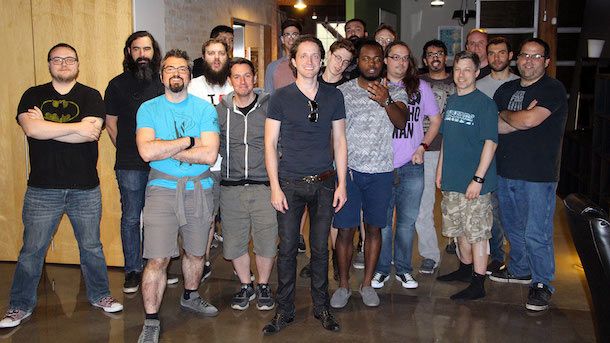
Phosphor Game Studio is a game development studio best known for mobile titles like “Dark Meadow” and “Horn” along with VR games “The Brookhaven Experiment” and “RUSHFIRE.” CTO Kyle Bailey said his devs keep their skills sharp by working with cutting-edge technology across a variety of platforms.
How does your work help you grow as a developer?
We work in and on UE4 which is a AAA class game engine. Working with UE4 allows us to create new tools and features for our products every day.
What resources or opportunities does Phosphor Games offer to you and your team to grow your skill sets?
Phosphor takes advantage of new platforms and technologies. We’ve pushed boundaries with our mobile games “Dark Meadow” and “Horn,” and recently, with the advent of consumer-quality VR, we had a chance to make “The Brookhaven Experiment” and “RUSHFIRE.” Having the opportunity to work across new platforms in many environments is one of the best ways to grow your skills as a programmer and game developer.
What makes your team unique or different from others you've worked on?
Our programming team takes a client-focused approach and works across our organization to create awesome games. We work directly with a host of talented game designers, artists and animators to assess technical project needs, and that side-by-side contact allows us to plan development accurately and respond quickly while creating amazing content.
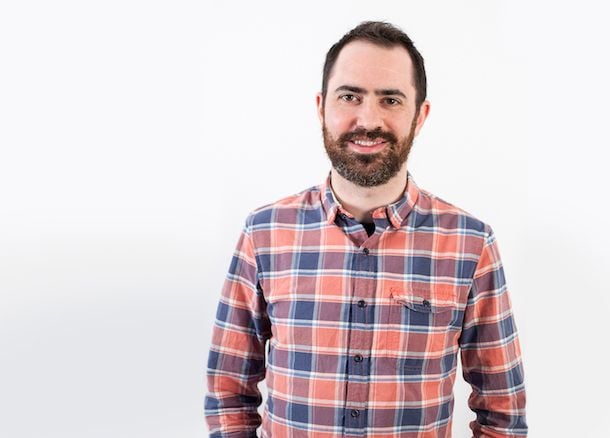
BenchPrep builds cloud-based software for organizations like ACT and the HR Certification Institute to help test takers better prepare for exams through gamification and personalization. Developer Bill Leidy said BenchPrep’s culture, which values ownership and autonomy, has encouraged him to tackle challenges head on and helped keep his skills sharp.
How does your work help you grow as a developer?
There is quite a bit of variety among the services in BenchPrep's code architecture. For example, our main consumer-facing application is a single-page app while our data reporting application relies on complex server-side queries. This gives me the opportunity to work on very different types of issues on both the front end and the back end.
We also have a great deal of autonomy on our team, which comes from leadership's approach to team management. I graduated from a coding camp, and in talking with others in my cohort I feel lucky to have landed at BenchPrep. I get to take the lead on solving interesting problems on a near-daily basis.
What resources or opportunities does BenchPrep offer to you and your team to grow your skill sets?
We have weekly peer-led lunch-and-learn and refactoring sessions that allow us to pick up knowledge of new tools and delve into different parts of our codebase. We also have a generous professional development budget that can be used for conferences, classes or basically any other training opportunity. Each person who goes to a conference presents the most interesting parts during a lunch-and-learn session.
What makes your team unique or different from others you've worked on?
The esprit de corps is stronger at BenchPrep than anywhere else I have worked. All the people who work here are committed to building a better product that will help people reach their learning goals. There is a truly collaborative atmosphere from the top down, and I feel this is an integral part of BenchPrep's culture and identity.

RedShelf's technology helps publishers and schools develop and distribute digital copies of textbooks, books, course packets and more. The company has also developed a web-based e-reader designed to work across multiple devices. Senior lead developer Steve Kain said RedShelf’s culture and management structure naturally encourage employees to develop their skill sets.
How does your work help you grow as a developer?
There's a lot of benefits for me in working as a developer here at RedShelf. The diverse types of solutions we're working on and the collection of different technologies we're using to deliver them, combined with the relatively flat management structure, allow me to work on a wide variety of things.
What resources or opportunities does RedShelf offer to you and your team to grow your skill sets?
I really appreciate the commitment RedShelf has demonstrated in helping to grow all of the developers' skill sets. From frequent lunch-and-learns to an environment that is very open to new ideas and new technologies, I have numerous opportunities to learn about things I've previously had little to no exposure to.
What makes your team unique or different from others you've worked on?
I really appreciate the intelligence and diversity of my co-workers. We've got a lot of different types of people working here offering different viewpoints and perspectives. But each and every one of us is smart, hard-working and committed to building great software.
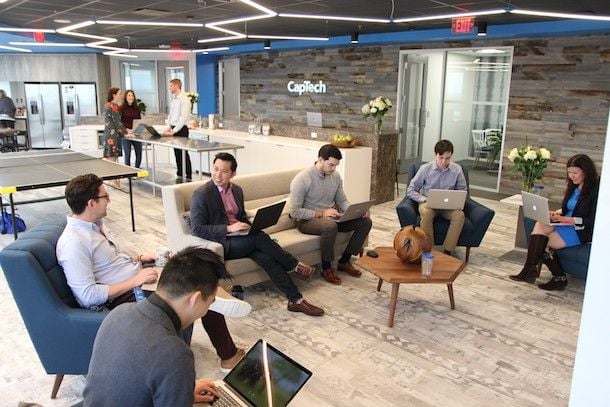
CapTech is a technology and management consulting firm that helps companies implement new technologies. Consultant Ram Ramkumar said working with senior developers and peer review sessions help keep his tech skills strong. He recently got to flex those muscles at a company-wide design challenge.
How does your work help you grow as a developer?
I have the opportunity to work side by side with senior, seasoned developers who are always willing to answer questions and provide insight. We consistently review each other’s work through pull requests, code reviews and weekly design sessions that help me pick up new skill sets, gain exposure to best practices and maintain my edge.
What resources or opportunities does CapTech offer to you and your team to grow your skill sets?
I recently had the opportunity to participate in a company-wide innovation challenge. This open-ended tech challenge focused on developing proof of concept solutions for natural language processing. While I knew very little about Alexa development going in, I walked away with the knowledge and experience to build a complete product from the ground up.
CapTech also offers a lot of trainings, chalk talks and presentations from in-house experts. I also get access to a full online course suite and financial support for any certifications or courses that improve my skills.
What makes your team different from others you've worked on?
We have a very involved, like-minded and intellectually curious group of CapTechers who enjoy solving problems. We proactively discuss potential problems and genuinely want to leave the client with a great product. My team and project are large, but CapTech’s emphasis on work-life balance allows us to have fun while growing professionally. We frequently have team outings, happy hours and breakfast to build relationships.
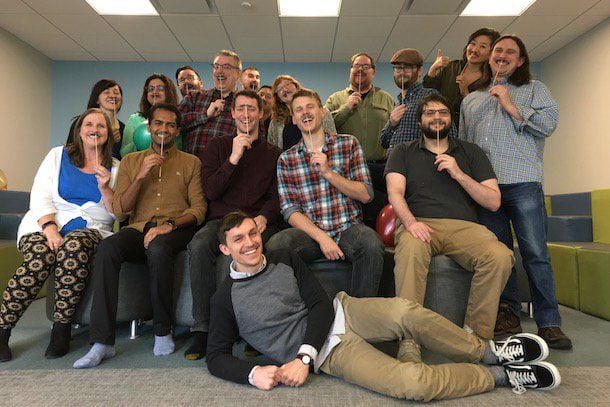
Instructure builds software to make learning more engaging. The company’s products include a cloud-based learning management system for K-12 schools and an interactive video lecture platform. Software engineer Spencer Olson said his work across the stack of Instructure’s flagship product, Canvas, along with in-house and external tech events, are what help him to grow as a developer.
How does your work help you grow as a developer?
My day-to-day work involves tackling problems on both the back and front end in a quickly scaling, complex Rails app. Whether it be optimizing queries to handle growing user activity or learning about new JavaScript frameworks and libraries, there are always opportunities for me to grow professionally.
What resources or opportunities does Instructure offer to you and your team to grow your skill sets?
Weekly tech talks given by our own developers, an annual internal tech conference in Salt Lake City, reimbursements for tech-related learning and quarterly "hack weeks” are some of the great perks Instructure offers to help developers grow their skill sets.
What makes your team unique or different from others you've worked on?
My team is my favorite thing about coming into work every day. Our focus on a common goal, coordination and communication allow us to be productive and work as one efficient unit. But our positive attitudes, support for one another and sense of humor are the things that really make this team stand out to me.





